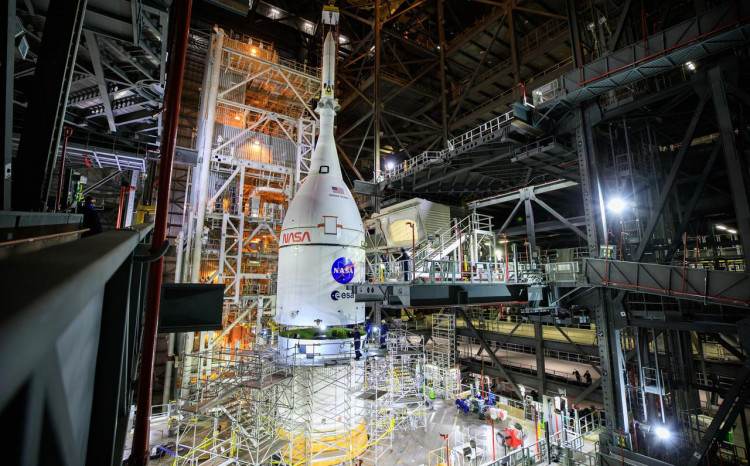This weekend, NASA will attempt to launch the Artemis 1 moon mission.
The Artemis 1 crew unanimously agreed to move forward with a liftoff attempt on Saturday, Sept. 3, from NASA's Kennedy Space Center in Florida during a meeting on Sept. 1. A two-hour window beginning at 2:17 p.m. is designated for the much-anticipated launch to take place.
Originally scheduled to launch on Monday morning (Aug. 29), Artemis 1 was delayed due to an issue with one of the four RS-25 engines that power the SLS core stage that was discovered during the countdown.
According to NASA experts, such thermal conditioning, accomplished by "bleeding" supercold liquid hydrogen propellant into the RS-25s, helps prevent a shock when the engines ignite.
Because the Artemis 1 crew was unable to resolve the issue before the launch window ended on Monday, the mission was postponed.
"There's no guarantee that we're going to get off on Saturday, but we're gonna try," Artemis mission manager Mike Sarafin said during a news conference on Sept.1.
Artemis 1 will launch an uncrewed Orion spacecraft into lunar orbit and back using a Space Launch System (SLS) rocket. It will be the SLS's and NASA's Artemis program's maiden mission, with the goal of establishing a permanent human presence on and around the moon by the late 2020s.
"We have convinced ourselves without a shadow of a doubt that we have good, quality liquid hydrogen going through the engines. There's no fuzz on that," John Honeycutt, manager of the SLS program at NASA's Marshall Space Flight Center in Alabama said. "We know we had a bad sensor."
Artemis 1 would likely need to be moved off the launch pad and back to the enormous Vehicle Assembly Building at Kennedy Space Center in order to replace the sensor. On launch day, the team will keep the sensor in place and disregard any inaccurate readings since they don't believe that's essential or desirable, according to a statement from NASA this evening.
A minor hydrogen leak and a crack in the foam that is a component of the thermal protection system for the SLS core stage were two other problems that the Artemis 1 team examined. Team members reported this evening that the breach had been addressed. Additionally, merely "incremental risk acceptance," is needed for the foam fracture and the engine sensor problem.
"We're comfortable with our flight rationale and risk acceptance there," Sarafin said.






